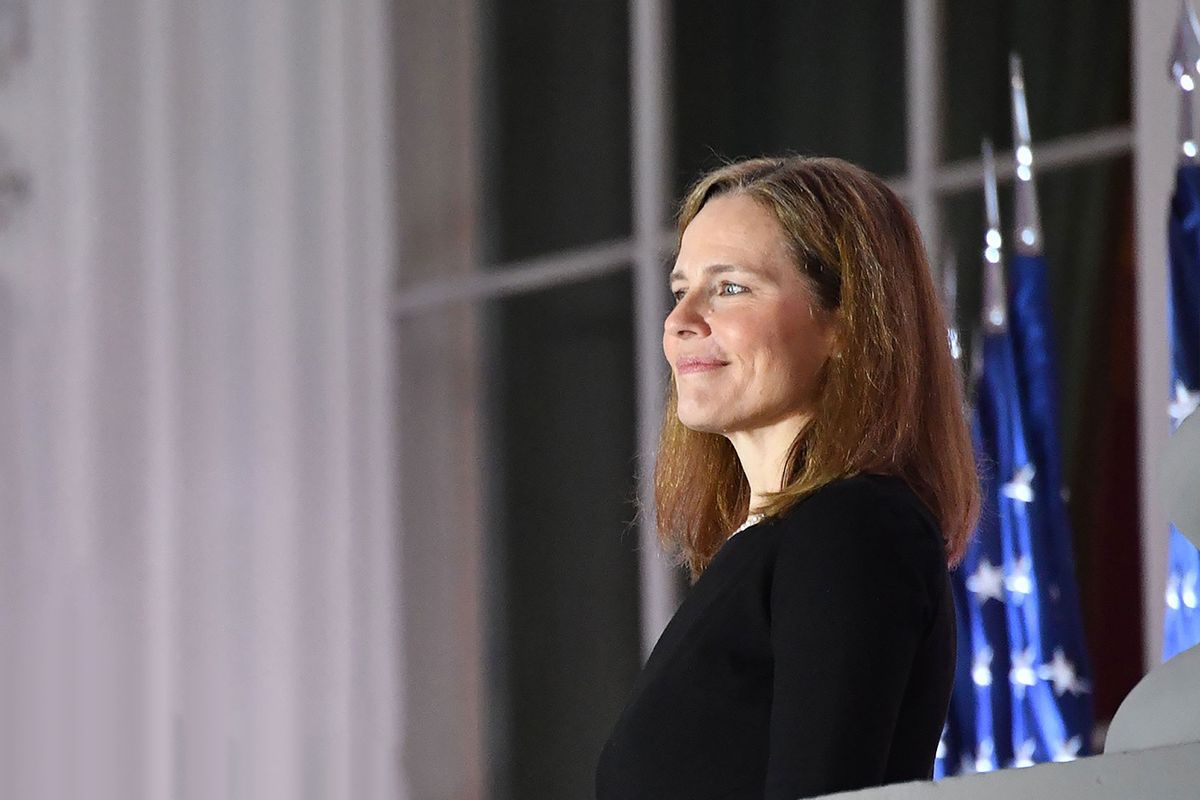“Shady and corrupt”: Watchdog group sounds the alarm over Amy Coney Barrett real estate deal

Supreme Court Justice Amy Coney Barrett has personal ties to a leader of the legal clinic under the Notre Dame initiative that funded Justice Samuel Alito’s July 2022 speaking trip to Rome, CNN reports.
Just months after she was sworn in at the Supreme Court in 2020, Barrett, who had left her judgeship and job as a Notre Dame law professor, sold her private home in South Bend, Indiana, to a recently hired Notre Dame professor who was assuming a leadership role at the Religious Liberty Initiative, according to records discovered by the left-leaning non-profit watchdog group Accountable.US.
The initiative’s legal clinic has curried favor with the Supreme Court since its founding in 2020 and filed at least nine “friend-of-the-court” amicus briefs in religious liberty cases before the Court. Alito joined the majority in deciding in favor of the initiative’s conservative positions in several of those cases, including the one that reversed Roe v. Wade, and others on issues of school prayer and COVID-19 restrictions on churches.
Neither Barrett’s real estate transaction nor Alito’s trip to Italy to deliver a keynote at a gala violated the court’s ethics rules, several experts told CNN.
“It raises a question – not so much of corruption as such, but of whether disclosures, our current system of disclosures, is adequate to the task,” Kathleen Clark, a professor at Washington University in St. Louis Law School who specializes in government ethics, told the outlet.
Barrett sold the home to Brendan Wilson, then a Washington D.C.-based lawyer, for $905,000, a transaction that she was not required to disclose on her annual financial forms. Federal regulations exclude sales of the “personal residence of the filer and the filer’s spouse” from financial matters judges are mandated to disclose.
However, some experts told CNN that Wilson’s role at the Religious Liberty Initiative and the work of its legal clinic provide another reason why some rules at the Supreme Court should be adapted to increase transparency for the public, giving it a better understanding of the ties between the justices and legal advocates in the high court.
“The court, frankly, it faces a kind of legitimacy crisis because of the really dire weaknesses of its ethics,” Clark said. “It has the opportunity to address that legitimacy crisis by, you know, stepping up its ethics game – imposing on itself and then abiding by additional disclosure operations.”
Want a daily wrap-up of all the news and commentary Salon has to offer? Subscribe to our morning newsletter, Crash Course.
Stephanie Barclay, the Religious Liberty Initiative’s director, emphasized to CNN that Wilson “really could not be further removed from Supreme Court litigation” and explained that many people involved with the group contribute to the briefs they submit to the Supreme Court.
Wilson’s biography on the initiative’s page says his role covers “the transactional component of the Religious Liberty Clinic,” and a recent job posting from the group specified that the transactional component includes legal advising for religiously affiliated organizations.
Wilson did not respond to CNN’s interview requests, nor did Barrett respond to the network’s request for comment.
Barrett’s real estate transaction makes her the third member of the Supreme Court to have made money from property sales with powerful conservative figures or people connected to legal advocacy groups writing the Court.
Politico reported that Justice Neil Gorsuch sold a vacation home to the CEO of a major law firm who has argued before the court and did not disclose the buyer’s name. Justice Clarence Thomas also came under fire earlier this year when ProPublica revealed a 2014 real estate deal he made with GOP megadonor and billionaire Harlan Crow and failed to disclose. The outlet also revealed that Crow had financed decades of lavish travel and gifts for Thomas and paid the tuition of Thomas’ grandnephew for two years in the 2000s.
Indiana University law professor and legal ethics expert Charles Geyh told CNN that despite Barrett’s transaction falling within Supreme Court regulations, it only further complicates the perception of the court in the public eye.
“It is addressed by the court being much more vigilant in guarding against perception problems created by (the justices’) financial wheelings and dealings and going the extra mile to make sure that they not only are clean, but look clean,” he said.
The controversies and increased public scrutiny of the court have also sparked calls for a defined code of ethics to be imposed and enforced on the justices.
“The endless drip of shady and corrupt Supreme Court dealings just further underscores the need for reform.” Accountable.US President Kyle Herrig said in a statement. “Every federal judge is bound to an ethics code requiring them to avoid behavior that so much as looks improper, except for Supreme Court justices. Chief Justice (John) Roberts has the power to change that, but so far he hasn’t shown the courage. If he fails to do his job, Congress must do theirs.”
Read more
about the SCOTUS ethics scandal

